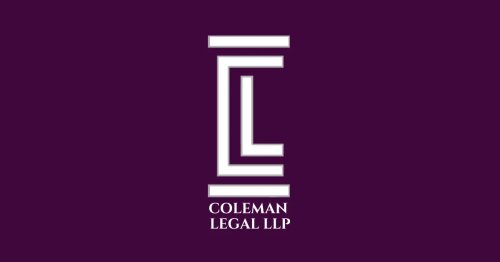Best Constitutional Law Lawyers in Ireland
Share your needs with us, get contacted by law firms.
Free. Takes 2 min.
Or refine your search by selecting a city:
List of the best lawyers in Ireland
About Constitutional Law in Ireland
Constitutional Law in Ireland governs the fundamental principles and established precedents that constitute the legal framework of the country. It is primarily derived from the Constitution of Ireland, also known as Bunreacht na hÉireann, adopted in 1937. This supreme legal document lays out the structure of government, delineates the separation of powers, and enshrines fundamental rights and freedoms for citizens. The Constitution can only be amended through a referendum, reflecting its central role in the legal system.
Why You May Need a Lawyer
There are several situations where individuals or groups may seek legal assistance in Constitutional Law. These include challenges to laws or governmental actions believed to be unconstitutional, disputes involving civil liberties, issues of human rights infringements, or cases where there is a question about the interpretation or application of the Constitution. A constitutional lawyer can offer expertise in navigating these complex legal challenges.
Local Laws Overview
In Ireland, the Constitution is the highest law, and all other laws must comply with its provisions. Key aspects of Constitutional Law pertinent to legal proceedings include:
- Protection of fundamental rights, such as freedom of expression, assembly, and religion.
- Separation of powers between the legislative, executive, and judicial branches of government.
- Provisions for the modification of the Constitution through referenda.
- The role of the President as the guardian of the Constitution.
- Judicial review, where courts can assess the constitutionality of legislative acts.
Frequently Asked Questions
What is the Constitution of Ireland?
The Constitution of Ireland, Bunreacht na hÉireann, is the foundational legal document that sets out how Ireland is governed and guarantees certain rights to citizens.
How can the Constitution be changed?
Changes to the Constitution can only be made through a national referendum, where the people of Ireland vote on proposed amendments.
What is judicial review?
Judicial review allows the courts to assess whether laws passed by the government are in compliance with the Constitution.
Are there protections for civil liberties in the Irish Constitution?
Yes, the Constitution provides various protections for civil liberties, including freedoms of expression, assembly, and religion, among others.
What is the role of the President in Constitutional matters?
The President of Ireland has a constitutional role in ensuring the laws passed by the Oireachtas comply with the Constitution, and may refer legislation to the Supreme Court for review if necessary.
What happens if a law is found to be unconstitutional?
If a law is declared unconstitutional, it can be struck down, either wholly or in part, by the courts. This means it will no longer have effect.
How does Ireland handle human rights issues under the Constitution?
The Constitution includes protections for human rights, which are upheld by the courts. Additional human rights protections are offered under EU law, to which Ireland is a signatory.
Can individuals challenge government actions on constitutional grounds?
Yes, individuals can challenge government actions they believe are unconstitutional through the courts.
What is the process for resolving constitutional disputes?
Constitutional disputes can be resolved through litigation in the courts, which interpret and apply constitutional principles to specific cases.
How significant is the influence of EU law on Irish Constitutional matters?
EU law significantly influences Irish law, as Ireland is a member state. However, it must operate within the parameters established by the Irish Constitution.
Additional Resources
For those seeking more information or assistance, consider the following resources:
- The Courts Service of Ireland: offers insights and resources on how the judicial system operates.
- The Law Society of Ireland: provides information on finding qualified legal professionals.
- The Free Legal Advice Centres (FLAC): offers free and confidential legal advice to the public, including on constitutional law issues.
- The Irish Human Rights and Equality Commission: promotes and protects human rights and equality in Ireland and may offer relevant guidance.
Next Steps
If you believe you require legal assistance in the area of Constitutional Law, consider taking the following steps:
- Assess whether your legal issue pertains specifically to constitutional law and involves rights or provisions enshrined in the Constitution.
- Seek initial advice from legal organizations like FLAC or consult with a solicitor who specializes in Constitutional Law for a more detailed understanding of your rights and legal options.
- Consider whether you need to initiate legal proceedings or explore alternative dispute resolution methods such as mediation.
- Ensure you gather all relevant documentation and evidence as you prepare to consult with a legal expert.
Lawzana helps you find the best lawyers and law firms in Ireland through a curated and pre-screened list of qualified legal professionals. Our platform offers rankings and detailed profiles of attorneys and law firms, allowing you to compare based on practice areas, including Constitutional Law, experience, and client feedback.
Each profile includes a description of the firm's areas of practice, client reviews, team members and partners, year of establishment, spoken languages, office locations, contact information, social media presence, and any published articles or resources. Most firms on our platform speak English and are experienced in both local and international legal matters.
Get a quote from top-rated law firms in Ireland — quickly, securely, and without unnecessary hassle.
Disclaimer:
The information provided on this page is for general informational purposes only and does not constitute legal advice. While we strive to ensure the accuracy and relevance of the content, legal information may change over time, and interpretations of the law can vary. You should always consult with a qualified legal professional for advice specific to your situation.
We disclaim all liability for actions taken or not taken based on the content of this page. If you believe any information is incorrect or outdated, please contact us, and we will review and update it where appropriate.
Browse constitutional law law firms by city in Ireland
Refine your search by selecting a city.














